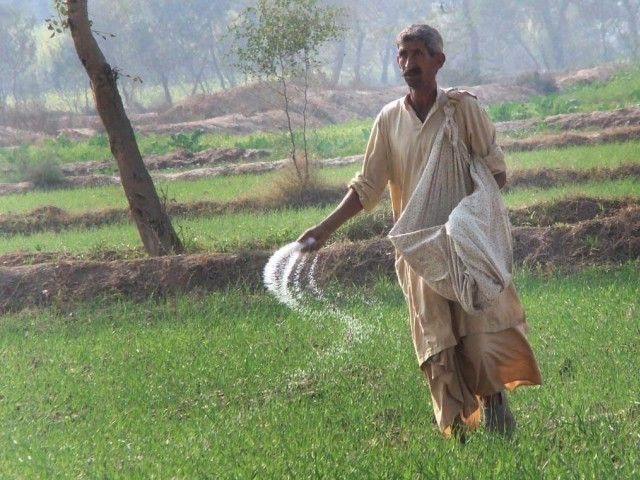Pakistan's agricultural sector, the backbone of its economy and a lifeline for millions of livelihoods, is facing a grave threat: the proliferation of fake fertilizers and pesticides. The recent revelation of 29 fertilizer dealers allegedly selling counterfeit products to wheat growers in Narowal district, resulting in substantial losses exceeding Rs300 million, is a stark reminder of the urgent need for robust regulatory measures and strict enforcement of laws governing agricultural inputs.
The agricultural landscape of Pakistan has long been plagued by such fraudulent practices, leading to significant financial burdens on farmers and contributing to the conversion of fertile agricultural lands into housing societies. This alarming trend not only undermines the economic sustainability of farming communities but also exacerbates food insecurity, forcing Pakistan to rely heavily on costly imports to meet its food needs.
The case in Narowal district is not an isolated incident but rather a symptom of a systemic issue that requires immediate attention and decisive action from government authorities. It is imperative to delve deeper into the root causes of agricultural fraud and explore comprehensive solutions to safeguard the interests of farmers and ensure food security for the nation.
One of the primary challenges contributing to agricultural fraud is the lack of stringent regulations and monitoring mechanisms governing the quality and authenticity of agricultural inputs such as seeds, fertilizers, and pesticides. The absence of robust quality control measures allows unscrupulous dealers and manufacturers to thrive, endangering both crop yields and farmer livelihoods.
The government's role in combating agricultural fraud cannot be overstated. It is incumbent upon regulatory bodies such as the agriculture department to enhance surveillance, conduct regular inspections, and implement strict quality testing protocols for all agricultural inputs entering the market. This includes comprehensive testing of samples in accredited laboratories to verify efficacy and authenticity, as demonstrated in the case of the fake fertilizers identified in Narowal district.
Furthermore, there is a pressing need for increased awareness campaigns and farmer education initiatives to empower agricultural stakeholders with knowledge about authentic products, proper usage guidelines, and avenues for reporting suspicious activities. Empowering farmers with information and resources is crucial in enabling them to make informed decisions and protect their investments from fraudulent practices.
The repercussions of agricultural fraud extend beyond immediate financial losses. They have far-reaching consequences on food production, environmental sustainability, and economic stability. The rampant use of fake fertilizers and pesticides not only leads to crop failures and reduced yields but also contributes to soil degradation, water contamination, and health hazards for consumers.
In light of these challenges, it is paramount for policymakers to prioritise regulatory reforms and allocate adequate resources to strengthen oversight mechanisms in the agricultural sector. This includes revisiting existing laws, imposing stricter penalties for offenders, fostering collaboration between government agencies, industry stakeholders, and farmer associations, and promoting innovation in agricultural technologies to enhance productivity sustainably.
Moreover, the call for action extends beyond governmental entities to encompass collective responsibility from all stakeholders, including agricultural suppliers, retailers, farmers, and consumers. Creating a culture of transparency, accountability, and ethical business practices is essential in building trust and resilience in Pakistan's agricultural ecosystem.
As the affected farmers in Narowal district demand immediate relief and intervention from top leadership, including Prime Minister Shehbaz Sharif and Punjab Chief Minister Maryam Nawaz, it underscores the urgency of addressing systemic vulnerabilities and ensuring justice for those impacted by agricultural fraud.
In conclusion, combating agricultural fraud requires a multi-faceted approach encompassing regulatory reforms, technological innovations, stakeholder collaboration, and public awareness. The time has come for decisive action to protect farmers' interests, preserve agricultural productivity, and secure Pakistan's food sovereignty for generations to come. It is a collective responsibility to safeguard the backbone of our nation's economy and ensure a sustainable future for agriculture in Pakistan.



COMMENTS
Comments are moderated and generally will be posted if they are on-topic and not abusive.
For more information, please see our Comments FAQ